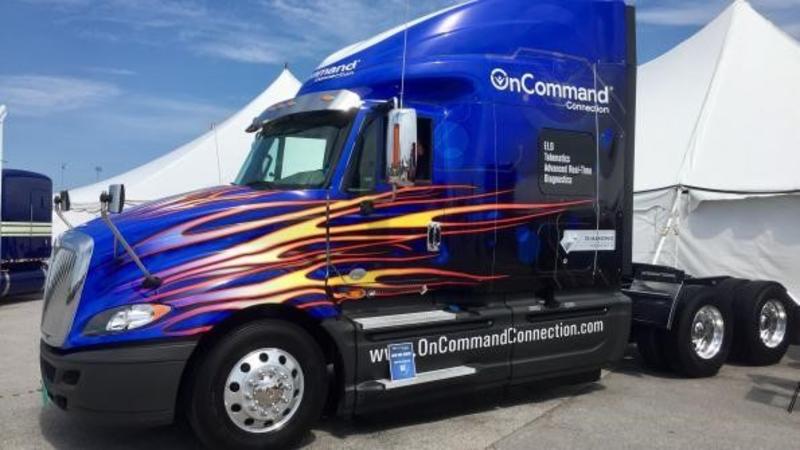“With the Electronic Logging Device (ELD) mandate in the books, mobile devices in vehicle cabs are now commonplace,” explained Gina Daniel-Lee, VP Strategic Alliances and Partnerships at https://www.stratixcorp.com. “These phones and rugged tablets can help fleets distinguish themselves from the pack by leveraging telematics technology that takes a big bite out of waste and boosts profit margins every day.
“A typical over-the-road fleet can spend up to 40% of its time idling, with a lead-foot driver using up to 20% more fuel than the average trucker. With smartphones and tablets linking drivers and dispatchers, trucking fleet management technology can do away with overspending and improve overall safety.”
Daniel-Lee offered 10 benefits that telematics technology can deliver for trucking fleet management.
• Increase efficiency. Drivers who know their behavior is being monitored tend to perform according to company and regulatory standards, which can reduce accidents and damage to vehicles and freight.
• Increase job satisfaction. With electronic logs, drivers have more control over their daily routines, which is one of the top contributors to job satisfaction. The drivers know how much time they have left to work and can better collaborate with dispatchers to meet customer demands. Having smartphones and tablets with them at all times, they can engage in training at a time and place that’s convenient for them.
• Reduce operating costs. Saving even a few minutes of idling time across a fleet leads to huge fuel savings. Better fleet and driver utilization can lift equipment availability to meet customer demand with existing assets. Connecting with drivers via cab-mounted tablets, fleet managers can instantaneously update drivers on detours, reroute them around heavy traffic and direct them to preferred fuel vendors.
• Monitor safety habits. With connected trucks, management can view how fast vehicles are being driven, how quickly they accelerate from a stop and other indicators of driver behavior. Drivers can be rewarded or counseled based on their performance relative to regulations and standards.
• Optimize vehicle performance. Vehicle sensors can deliver alerts about engine problems and other diagnostic issues, while informing routing centers when a vehicle is out of service. The cache of vehicle data can help drive fleet overhaul and replacement planning as well.
• Schedule alerts for repair centers. Wired vehicles can monitor vehicle diagnostics and contact repair centers with proactive schedule alerts. This allows drivers and managers to plan for maintenance rather than running a truck to the point of failure.
• Streamline compliance. Despite the December 2017 deadline for the ELD mandate, 43.7 percent of out-of-service violations were related to HOS tracking during the 2018 RoadCheck enforcement event. Fleets need to be more proficient with mobile telematics technologies to improve compliance.
• Retain/attract drivers. Mobile technology can increase connectivity for drivers who often feel disconnected by allowing them to virtually attend company meetings, while also improving daily communication with their managers.
• Enhance security. Storing both company and personal data on mobile devices has become possible. With this technology, drivers can still use company-issued tablets for entertainment and communication during downtime, without compromising the security of business applications.


